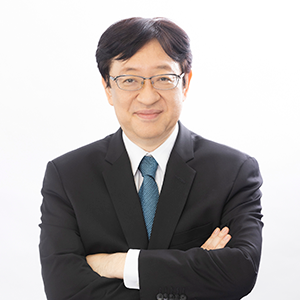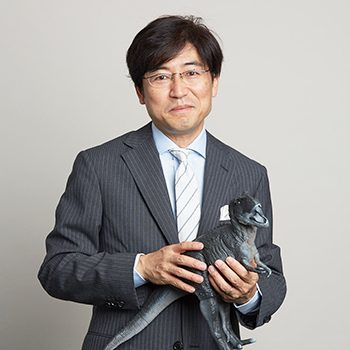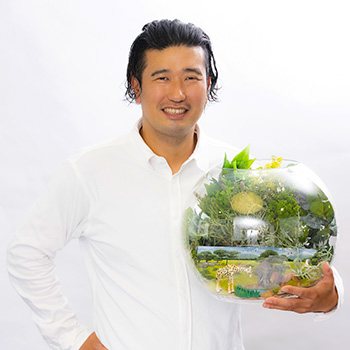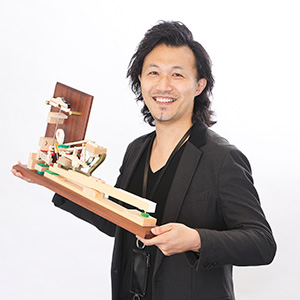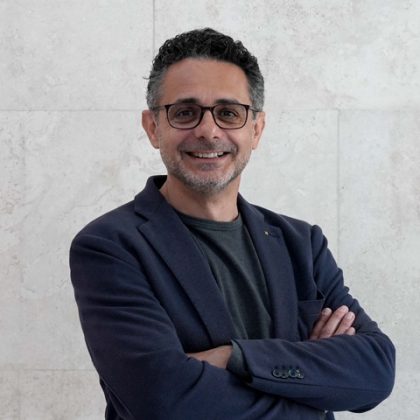Laboratories
As of 2025, Sony CSL is based in Tokyo, Kyoto, Paris, and Rome, and its five research centers are working on the Planetary Agenda, which addresses social issues such as sustainability, urban planning, and energy, Human Augmentation, and AI and data analytics. The company is engaged in research to make real-world systems and processes intelligent and to enhance creativity and artistry.
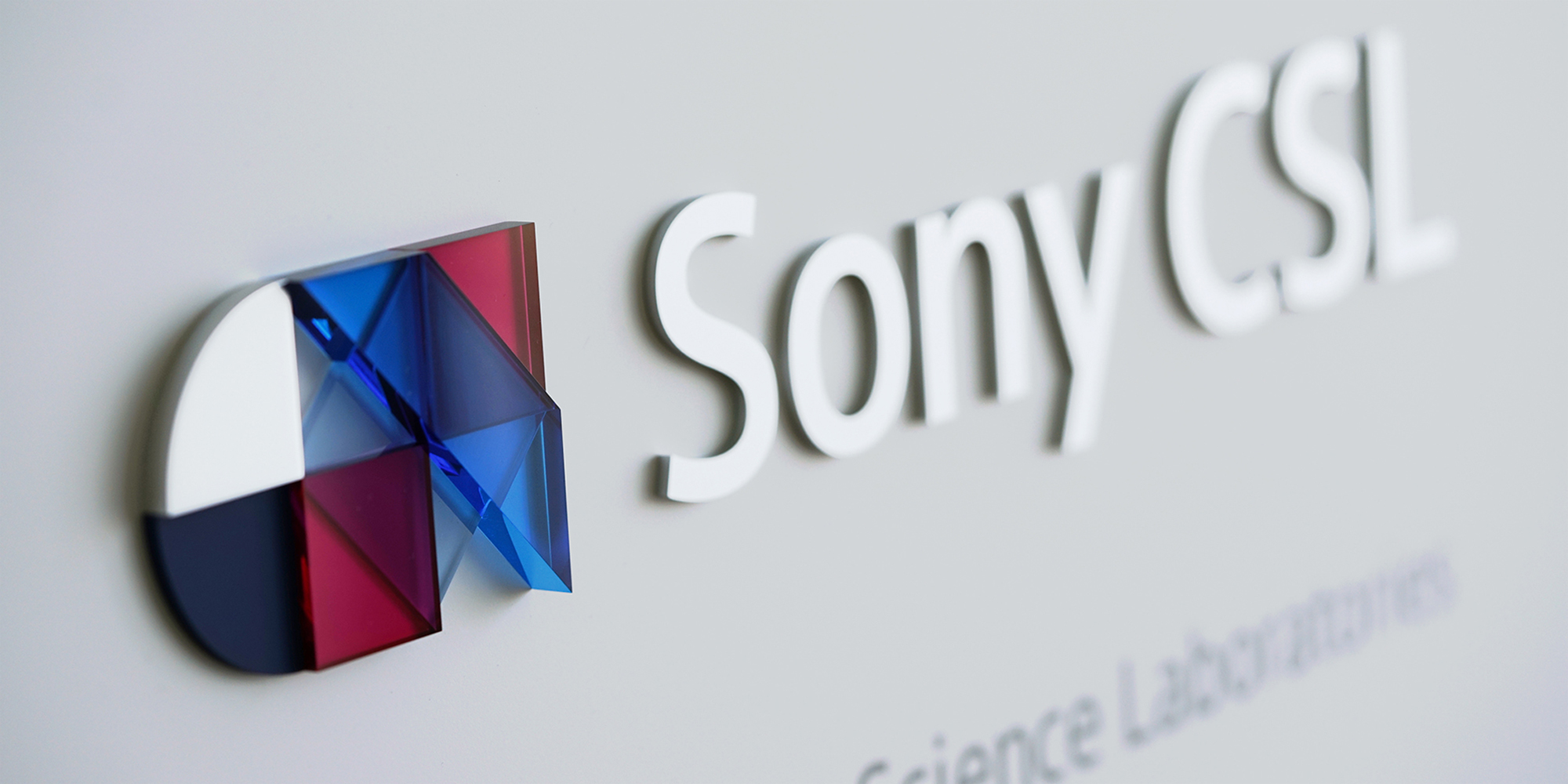
Message from the Director
To do research is to open up the future, and that future exists in the imagination of each researcher. And that future exists in the imagination of each researcher. Sony Computer Science Laboratories (Sony CSL) contributes to the creation of a future beyond imagination by supporting researchers with extraordinary imagination. We human beings have amazing potential and great diversity, and we believe that maximizing our creativity, intellectual capacity, and physical capabilities and expanding them through the use of technology will change the nature of civilization and challenge the possibilities of humanity. Humanity, which has extended technology as an extension of itself, has the potential to make a qualitatively different leap forward from what we have seen up to now, if we consider this as the next step in evolution.
Despite this potential, the reality of our society is that we face extremely difficult problems in each of these areas: poverty, aging, food, resources, and medicine/health. Furthermore, human civilization is also responsible for major changes in the natural environment, such as irreversible climate transitions and loss of biological diversity. These problems are complex, diverse, and interconnected, and they pose us with an extremely harsh reality. To solve these issues, we will need to think outside the box, have the will to transform our civilization, and have the ability to execute with excellence.
Sony CSL was founded on the principle of “research for the future of humankind,” and today we have taken that principle even further and have come to believe that our mission is to conduct “research for the future of humankind” and this planet.
In 2008, on the occasion of the 20th anniversary of our institute, we proposed “open systems science” as an approach to science for open systems, instead of the conventional approach for closed systems. The global environment and global social systems, for example, are made up of complex interactions, and open systems are typical examples of systems whose boundaries are virtually undefinable. When we get creative ideas, we are not confined to a limited network of knowledge. Furthermore, when humanity externalizes technology to itself, it becomes an open system, connected not only to nature but also to social systems. Open systems research, because of its complexity, openness, and uniqueness, can be said to be research that challenges the understanding and design of unrepeatable and extremely important phenomena. In such research, science as empirical science and art, or ars, in its original sense, must work together.
In order to solve problems arising from the nature of such systems, we believe that it is necessary to integrate knowledge from a wide range of fields and, at the same time, to go beyond academic research and actually take action, dive into the field, and in some cases, even conduct research while continuing to be involved in the transformation of the systems themselves.
With this in mind, we have adopted the action principle of “Act Beyond Borders”. We believe that we should transcend the boundaries between countries, research fields, and even between research and business, and take action to solve problems, create new possibilities, and contribute to the world. The basis for this is the imagination and obsession of each researcher who engages in research. In a sense, this means that each researcher must challenge the limits of his or her own imagination. The question is how much we can embody our vision of the future. The ability to imagine in as much detail and concretely as possible the extremes of what will happen in the future and what needs to be realized, and then to actually realize them, is being tested. This vision of the future determines the direction of what needs to be done now.
At Sony CSL, we support the process of turning this source of imagination into a precisely envisioned future. While the results of our research are sometimes returned to the world in the form of the creation of so-called academic disciplines or major academic contributions, there are also many things that need to be developed into concrete actions in order to be returned to the world in a solid way. Some of our research results are returned to the world through Sony Group businesses, others are realized through like-minded domestic and international companies, public utilities, and government agencies, and still others are directly commercialized by us, depending on the will of each researcher and the nature of the theme.
Sony CSL is and will remain a small organization. We believe that for this organization to cross borders, take action, and change the world, we must unleash the power of the individual to the fullest extent, and continue to project our influence to the world to the greatest extent possible, creating like-minded people and accomplishing great transformations. This can be called the Global Influence Projection. The Sony CSL organization itself will continue to change in order to realize this philosophy.
Sony CSL is a platform for the future of humanity and the planet.
Hiroaki Kitano
Sony Computer Science Laboratories, Inc.
President & CEO
February 2022
As a research institute at the intersection of cutting-edge technology and human potential, we are in a position to shape the evolution of society.
In an everchanging world, the need for solutions to complex problems is higher than it has ever been. Our mission is to make use of the vast potential of our technology, which has computer science at its core, to solve the numerous issues that face humanity. With an understanding of the duality of hopes and anxieties that arise from rapid technological advances, we pledge to pursue the eternal values that define human nature and lead humanity to a prosperous future.
Sony Computer Science Laboratories has adopted the action principle “Act Beyond Borders,” and has transcended narrow academic findings to make wider contributions to social development. We aim to contribute to humanity and society by investigating and implementing desirable solutions in a wide range of social sectors, including industry, education, health, creativity, and culture. Without fear, we will realize ideas that we firmly believe will be universal in the future, even if at present they may seem unconventional, eccentric, or even delusional.
At the same time, we are actively engaged in researching eternal human values, culture, and the arts. We will respect essential and eternal human and social values in our investigations without being swayed by technological changes in the near-term. This is because we believe that a sophisticated fusion of innovation and permanence is crucial to achieving technological development that contributes rather than impairs the fulfillment of human values.
Our four research locations in the cities of Tokyo, Paris, Kyoto, and Rome all symbolize our research philosophy of combining innovation and permanence. Our choosing these four “Città Eterne” expresses our conviction that it is important to respect diverse points of view, creativity, judgments, traditions, and cultures, and combine them with leading-edge technologies.
We will also establish a research organization that put into practice innovative systems that transcend physical limitations. We will continue to stand at the forefront of information and science technology, and make even research methods and laboratory management themselves subjects for research and practice, to push the limits of science and beyond.
Sony Computer Science Laboratories is committed to striving ahead in this journey while fully aware of our significance and social responsibility as a research institute. We will engage in our research activities in order to further cultivate eternal human values and promote the evolution of human society.

Transboundary Research
Sony CSL, which began in Tokyo and Paris and expanded to Kyoto and Rome, has become a decentralized organization of diverse members with more freedom to develop essential research activities. As we continued to act beyond borders, the scope of our activities has expanded, and we are now driving both research and social implementation in various locations, with a view to projecting our impact on a global scale. In the wake of COVID-19, we have pushed forward with our experiments as a decentralized organization and pursued our role as a mothership that supports Research for the Future of Humanity and Our Planet.
In order to advance this essential mission in a broader and more radical way, we believe that the time has come for us to no longer be rooted in a particular region or culture, but to fly toward a celestial perspective that looks beyond the conflicts of terrestrial values. We launch Transboundary Research as a mothership to support those who are willing to carve a completely new page in the long and difficult itinerary that humanity has inherited so far. It is a constellation of starseekers pointing the way in the midst of a storm, which augurs a new journey that will take us beyond the collapse of many myths and the tipping points of civilization.
In a time of great change, we aspire to serendipities by driving ourselves as an exodus from the safe havens of the past.
To what extent will your research continue to bravely orient us to new truths beyond the places and times in which you were born?
As intellectual diasporas who dare to speak from marginal areas, and nomadic researchers who venture into uncharted fields, we will face the world with our inner calling, and connect to the future with a curiosity that exceeds the limits of our imagination.
(June 2023, in the jungles of Sumatra)
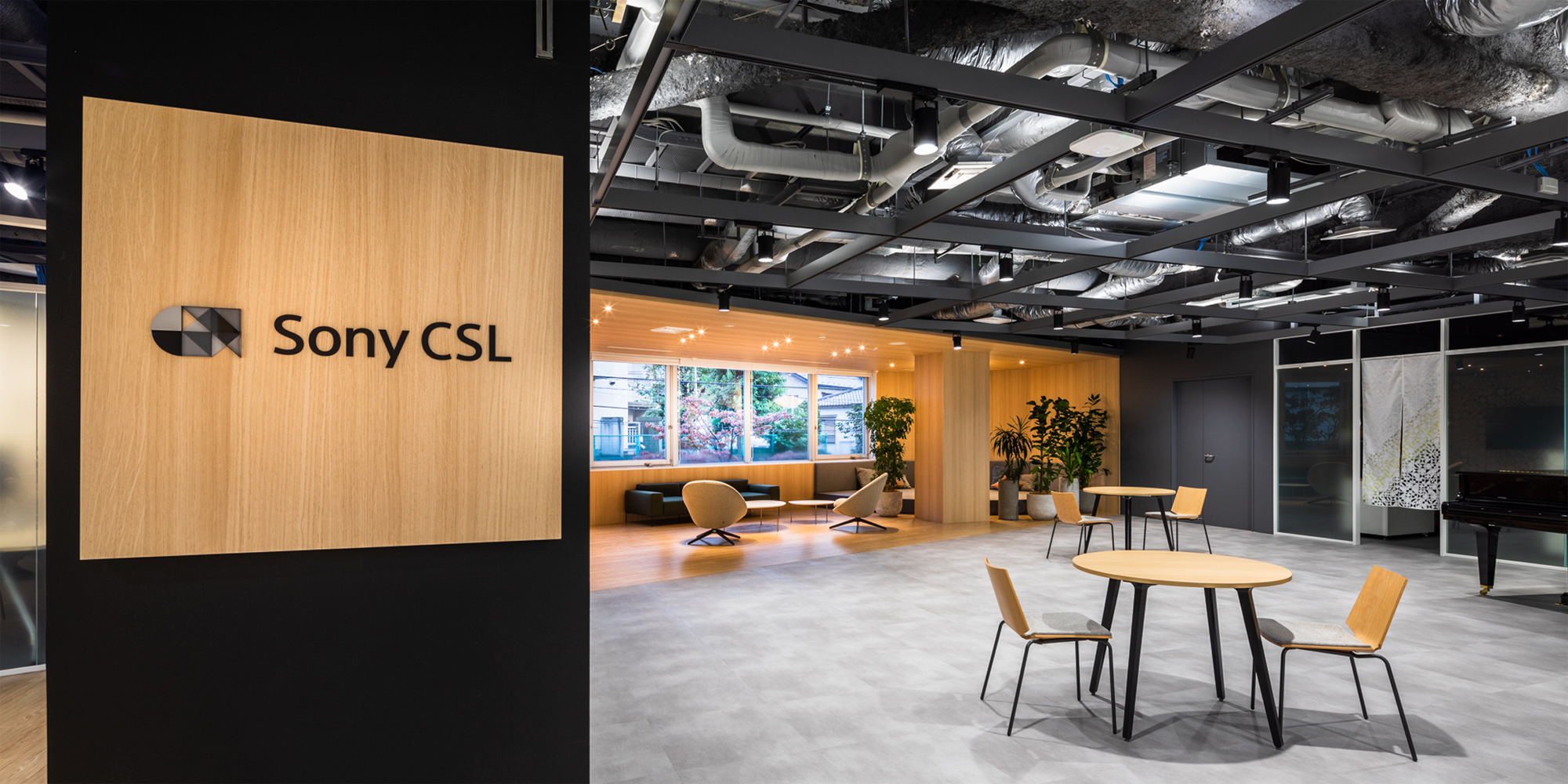
Tokyo Research
Startling advances in technology and science continue to expand the boundaries of our abilities. A key question is what enables for individuals and society to sustainably enjoy the moving experience while living in harmony with these advances. One of the universal moving experiences throughout a course of human history is the active and fundamental joy of “creation”. The source of our research activities is the obsession with a future in which individuals and society can enjoy the excitement that accompanies various forms of creation, including industry, culture, art, medicine, entertainment, sports, study, education, and even the activities of daily life. To realize such wildest imagination, it is essential to drive research with a cohesive force that deserves the basis of moving people, but this alone may not be sufficient.
Research with a clear vision backed by conviction and strong driving force to realize it will form the core of making synergy among people with diverse expertise and backgrounds to co-create a future full of unknown and inspiring experiences. We realize it here in Tokyo, a place that has been long attracted people from various parts of the world. The mission of Tokyo Research is therefore to produce the “butterfly effect” through making the synergy and co-creating a future full of unexperienced moving experiences. Such a wave will propagate beyond time and space through resonating with the genes of creators that reside in all human-being.
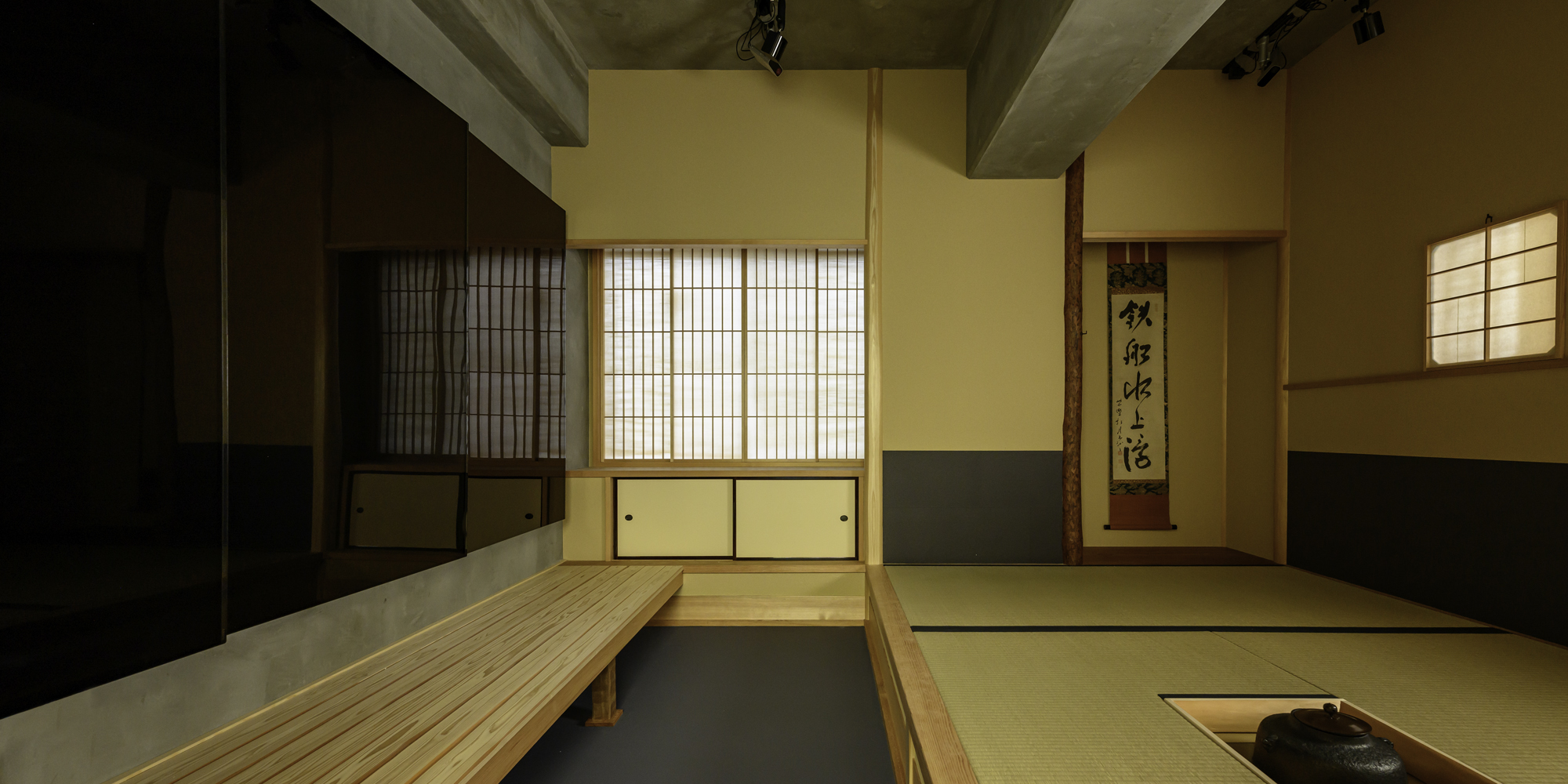
Kyoto Research
Information technology is rapidly advancing at an unprecedented level to automate and streamline human actions. What we are witnessing is a wave of social change on a scale comparable to the Industrial Revolution. As a research organization, we believe that the time has come for us to develop the basic technologies that will lead this progress, while at the same time seriously consider the compatibility of technological progress and human happiness. It is not just about efficiency and automation, but also of senses of fulfillment and permanence that people can feel, and the inheritance and development of traditions. We call this “Yutakasa (abundance)”. Yutakasa is a timeless principle that transcends mere material and monetary wealth and has the power to link technological progress with the well-being of humankind. It is the enduring driving force behind our research activities.
It is precisely to embody this principle of abundance that our institute was established in Kyoto. Kyoto is not only a world-class cultural city with a rich cultural heritage and traditional crafts, but also a dynamic center for the development of cutting-edge technology and the transmission of new culture. We seek a future where advanced technology and traditional values are in harmony, where humanity and progress coexist, by developing and applying new technologies in harmony with the unique perspective gained from the fusion of tradition and innovation in Kyoto and the rich cultural resources of the region. This is a core part of our research, as we pursue the possibility of new technologies as a means to enhance the well-being of humanity, and in the process, protect and further develop traditions and culture without losing them. Here in Kyoto, Japan, we aim to bring these elements together and realize “Yutaka-ness”.
Our mission is to find “Yutaka-ness”, where technological progress and human happiness coincide, and to spread it throughout the world.
Sony Computer Science Laboratories - Kyoto WEB SITE

Paris Research
We are living in a pivotal time in which we face environmental and societal challenges. Paris Research is committed to working on technologies that assure we pivot towards sustainable, peaceful, and democratic societies.
Climate change and the loss of biodiversity are two of the challenges we face. While the ecological transition is high on the agenda of governments and companies, there lacks a vision of what we are transitioning to. Our aim is to adopt a long-term perspective on the potential evolution of our society and foster a renewed bond between Humanity, Nature, and Technology.
Social networks have emerged as the main arteries for instantaneous global news and information sharing. While this remarkable technology has its merits, it also enables information manipulation without accountability. We will continue to study the dynamics of online discussions and seek to understand how to counter-balance the weaknesses of social networks so that they can become reliable tools for stable, democratic societies.
AI systems and especially foundation models are the new operating systems that will run most of our applications. We will harness them in novel ways to assist people, serving as tools for creativity or communication, while assuring these systems are trustworthy, grounded in factual data, and based on morally acceptable value systems.
More generally, at Paris Research we will seek new and stimulating imaginaries that center on the well-being of Humanity and of the Planet.
Sony Computer Science Laboratories - Paris WEB SITE

Rome Research
“Creativity is nothing but an intelligence that has fun.”
Albert Einstein
Our environments and societies are undergoing significant structural transformations, mainly through climate change, globalisation, and digitalisation. The COVID-19 pandemic made clear the urgent need for a radical rethink of our lifestyles: from the organisation of our societies and cities to the relationship between urban and rural areas, from our production systems to the breaching of ecological ceilings, from the personal well-being to more inclusive societies. Although the path to planetary security is not yet visible, the transformations of our rapidly changing world call for increasing the number of people able to conceive new technologies and find new solutions that will sustain large human societies safely and prosperously in equilibrium with the surrounding ecosystems.
Facing the complexity of the challenges ahead, creativity stands as one of the most effective tools we can rely on to redesign our societies; the most natural question is whether it is possible to improve human creativity. Is it possible to create conditions for a person to be more creative, helping her to shape and navigate the space of possibilities more efficiently?
At Rome Research, we push forward an original approach in which humans and machines safely cooperate for the betterment of humankind and the quest for sustainable solutions to the current societal challenges. The term “Augmented Creativity” boosts the vision of creativity as an excellent and unique tool to address the most complex challenges of our times and summarises a renewed synergy between natural and artificial intelligence. This is the leading idea underlying the foundation of Rome Research in its ambition to combine, in a unique ecosystem of public and private institutions, the sciences, the arts and public engagement to push research, drive innovation and act to “repair the present” while making a concrete future possible for everyone.
